Six researchers in the UK poured through computerized health registers and vaccination records. They identified 473 autistic children born in northeast London between 1979 and 1998. Parents reported developmental regression in 118 of those children. Statistical models confirmed no association between measles, mumps and rubella (MMR) vaccination and developmental regression. The findings were published by the British Medical Journals (BMJ) in 2002.
Welcome back to my multi-part fact check of a fact check on Robert F Kennedy Jr. This is part 2. As I mentioned in Part 1, the fact check states there is no link between vaccines and autism and then proceeds in backing up that claim with zero studies. However, they do cite a World Health Organization (WHO) fact sheet on autism, which is the subject of this newsletter.
Are neurodivergent children more susceptible to vaccine injury?
As I mentioned in Part 1, the emphasis on autism in the discourse surrounding vaccine safety is a figment of the dominant narrative. In reality, levels 2 and 3 autism are a small fraction of the many concerns. Nobody concerned about vaccine safety is pathologizing level 1 autism. Bringing up autism distracts from the real health problems that sometimes present themselves after vaccination.
As I also touched on in Part 1, perhaps some vaccine injuries are being falsely attributed to autism. Maybe neurodivergent children are more sensitive to certain chemicals in vaccines. I don’t know. Regardless, we must stop silencing and misrepresenting the scores of parents whose children developed serious health conditions immediately after a round of vaccinations. It's the voices of these parents that Kennedy has amplified.
To be clear, the only reason I'm focusing on autism is because it's what BBC Verify focuses on.
The WHO fact sheet only contains four references. Let's look at each one.
The first is a review on the global prevalence of autism. It doesn’t discuss the existence or nonexistence of an association with vaccines.
The second reference in the WHO page is an article from 2012. It's not even a review let alone a meta analysis. You can read the full list of its references here.
The article lists 41 references. Of those, thirteen are studies. Here’s a summary of each of those thirteen studies.
This is the study in northeast London that began this newsletter.
All participants were autistic.
The proportion of children with developmental regression didn't change from 1979 to 1998.
Of 443 children, 257 of them received the MMR vaccine before their parents reported concern about their development. 129, on the other hand, received the MMR vaccine after their parents reported concern. 57 did not receive the MMR vaccine.
The study's conclusion, however, emphasizes the lack of an association between the MMR vaccine and developmental regression.
This Canadian study determined that the measles virus was not found in children with autism spectrum disorder (ASD).
Likewise, this UK study from 2008 also showed no persistence of the measles virus nor measles antibody response in children with ASD. It tries to help rule out one possible mechanism by which the vaccine might lead to autism symptoms.
This Polish study from 2009 compared two groups:
96 children with autism
192 children without autism (controls) matched to the children with autism
Researchers then stratified children with autism into:
those who had received the MMR vaccine before symptom onset
those who had received the monovalent measles vaccine before symptom onset
those who were not yet vaccinated with either of the shots before symptom onset
The researchers then compared these percentages with those of the control group when they were at the same age as their matched case-group subject.
This study showed that children who received the monovalent measles vaccine were most likely to later develop autism symptoms.
Children who hadn't yet been vaccinated were the second most likely to later develop autism symptoms
And children who received the MMR shot were the least likely to then develop autism symptoms.
Instead of reporting the unexpected link, why did the study conclude there was no link?
This study looked at approximately 3 million doses of the MMR vaccine administered in Finland between 1982 and 1996.
To the researchers' credit, they reported that this study was partially funded by Merck.
Also to their credit, they specified exactly which strains were used. "Only one type of live-virus vaccine (MMR or Virivac [Merck, West Point, PA, USA]) consisting of the more attenuated Enders Edmonston, Jeryl Lynn, and Wistar RA 27/3 strains for measles, mumps, and rubella, respectively, has been used since beginning of the project."
The researchers reported that no child developed ASD, which raises more questions than answers.
This study from 1999 uses the same data set in the study at the beginning of this newsletter -- of autistic children in northeast London between 1979 and 1999.
First, let's set aside the oxymoron in the title: "no epidemiological evidence for a causal association." (Just as epidemiology can't prove cause and effect, it can't prove the absence of cause and effect).
The researchers conclude that since there wasn't a sharp uptick in autism diagnoses with the introduction of the MMR vaccine, there could be no association:
There was no evidence of a sudden ‘step-up’ in 1987, the first birth cohorts eligible for MMR vaccine in the second year of life. Neither was there evidence that the exponential trend changed after 1987.
The trend indeed was exponential. Autism rates started rising before the MMR vaccine and rose even faster after it was introduced -- you might even say exponentially.
They also note:
"There was a significant clustering of parental concern within 6 months of vaccination . . . when the data were reanalysed without cases with recorded age at parental concern of 18 months (n=61), all statistical significance disappeared."
It's not clear why the authors found it necessary to reanalyze the data to exclude those cases.
In this paper from 2001, which also uses the data set from the previous study, the researchers took a longer look at the onset of autism.
The following graphs show that 293 vaccinated children were diagnosed with ASD shortly after their vaccinations.
The 64 unvaccinated children's diagnoses, on the other hand, were more evenly spread out throughout their childhood:
Nevertheless, the authors concluded, "In all instances the relative incidence is not significantly different from 1, indicating no association between vaccination and autism in the sub-sequent risk periods."
This study compared 21 children with autism to 42 children without autism in Tokyo between 1988 and 1992.
Props to the authors for listing exactly what measles vaccines children had been given (i.e., AIK-C, Schwarz FF8, TD97, Tanabe CAM, and unknown) as well as the other vaccines received.
The data revealed that children who received the MMR vaccine were significantly less likely to have autism than children who received the monovalent measles vaccine, no mumps vaccine, or no rubella vaccine.
In other words, just as in Mrozek-Budzyn 2009, there was a link -- the opposite of that which they disproved.
As an interesting side note, the table shows that the children without autism (Control) had lower rates of vaccination for polio, DTP, DT, and BCG (TB).
Researchers in Finland looked at 535 444 children between the ages of 1 and 7 who received an MMR vaccine between 1982 and 1986.
The following graph shows the interval between MMR vaccination and first hospitalization for autistic disorder for 309 children. (I'm guessing Finnish hospitals include doctors' offices?) As you can see, the interval was short for most of these children.
Despite this, no association was found between MMR vaccination and hospitalization for autistic disorders.
Unvaccinated children's corresponding counts of hospitalization were mentioned, but the rates were not given. The researchers provide the number of vaccinated children but not the number of unvaccinated.
The study also found no association between MMR vaccination and encephalitis or aseptic meningitis. What's interesting is that a significant number of vaccinated children were hospitalized for meningitis and encephalitis. The cause was unclear.
Another interesting tidbit shared in this study was that MMR vaccines containing the Urabe or Leningrad-3 strain of mumps virus were shown to cause meningitis, so they were pulled from most countries. If only our regulatory bodies were this functional today.
For those concerned with vaccine safety, this study has limited value as most vaccine injuries wouldn't fall under encephalitis, aseptic meningitis, or autistic disorders.
Researchers in the UK compared 1294 people who had been diagnosed with pervasive developmental disorder to 4469 who hadn't. All had received an MMR vaccine. They concluded there was no evidence of a relationship between MMR vaccination and pervasive developmental disorder.
I'm not sure how you can rule out a connection if your control group was vaccinated as well.
Researchers looked at 27 749 children in Montreal born between 1987 and 1998.
To the authors' credit, under Methods --> Data, they report,
Individual immunization data were not available for study subjects.
Researchers in Denmark looked at national records of the 537,303 children born between 1991 and 1998.
Table 1 indicates that the percentage of vaccinated children diagnosed with autism was higher than the percentage of unvaccinated children.
Table 2 shows that of 482,360 person-years of unvaccinated children, there were 53 cases of autistic disorder and 77 cases of other autistic-spectrum disorders. That's 0.01% and 0.016%, respectively.
Of 1,647,504 person-years of vaccinated children, on the other hand, there were 263 cases of autistic disorder and 345 cases of other autistic-spectrum disorders. That's 0.02% and 0.02%, respectively.
Nevertheless, the paper’s statistical adjustments concluded that ASD is not associated with MMR vaccination.
Researchers in the USA matched 202 children with ASD with 31 neurotypical children. No unvaccinated children were included.
As shown in the table above, a higher percentage of participants with regression were vaccinated before onset as compared to participants with no regression.
Nevertheless, statistical calculations led them to conclude, “There was no evidence that onset of autistic symptoms or regression was related to measles-mumps-rubella vaccination.”
The third reference in the WHO page is a link to a news story announcing the retraction of Andrew Wakefield's 1998 paper in the Lancet.
The fourth and final reference in the WHO page is a news story announcing that the General Medical Council struck Dr Wakefield off the medical register.
A Straw Man Argument
I'm not sure why media institutions are so obsessed with Dr. Wakefield. Though they mention this retracted paper ad nauseam, I've never heard anyone, let alone Kennedy or Wakefield, cite Wakefield's 1998 paper as key evidence.
TL;DR
So does BBC Verify’s fact check debunk Kennedy's debunked claims about vaccine harm?
Decide for yourself. My answer is a resounding no.
Rather than judging Kennedy by the three books he's co-written on vaccines, BBC Verify picked a soundbite from a Fox News interview.
All they cite is a WHO webpage, which backs up its claims with no citations of studies. It does link to an article from 2012 that references thirteen observational studies on the MMR vaccine and ASD.
The thirteen studies are interesting and valuable. However, all in all, they don't convince me of the lack of a link. In my non-statistician eyes, there seems to be a pattern of discrepancies between the data and the statistical findings.
You could just as easily compile a different set of studies that do show a link.
Zeroing in on the MMR vaccine obfuscates the possibility that batches of vaccines produced from the late-eighties thereafter are riskier than earlier batches.
Zeroing in on the MMR vaccine also obfuscates the possibility that the increasing frequency of vaccine injury is due to the increasing number of shots on the childhood schedule.
The unvaccinated participants in these studies were only unvaccinated in the sense that they hadn't received the MMR shot at the time of diagnosis. In order to better assess overall vaccine safety, we must compare the overall health of fully unvaccinated children with that of their vaccinated counterparts.
Further Reading
Physicians For Informed Consent: ‘MMR Vaccine Has Not Been Proven Safer Than Measles, Mumps and Rubella.’
Vaccines and Autism: What do Epidemiological Studies Really Tell Us?
Dr. Paul Thomas' Breakthrough Study Shows Unvaccinated Children Are Healthier.
Deconstruction of a 2019 study claiming no link between vaccines and autism; the reason this paper isn't peer reviewed is that it’s currently undergoing the peer review process.
Turtles All The Way Down: Vaccine Science and Myth
234 papers show associations between vaccines and autism.
Vaccination and Neurodevelopmental Disorders: A Study of Nine-Year-Old Children Enrolled in Medicaid
Next time: Part 3
Stay tuned for Part 3. We'll look at the fact check’s section on water fluoridation. Is Kennedy mistaken about the science?




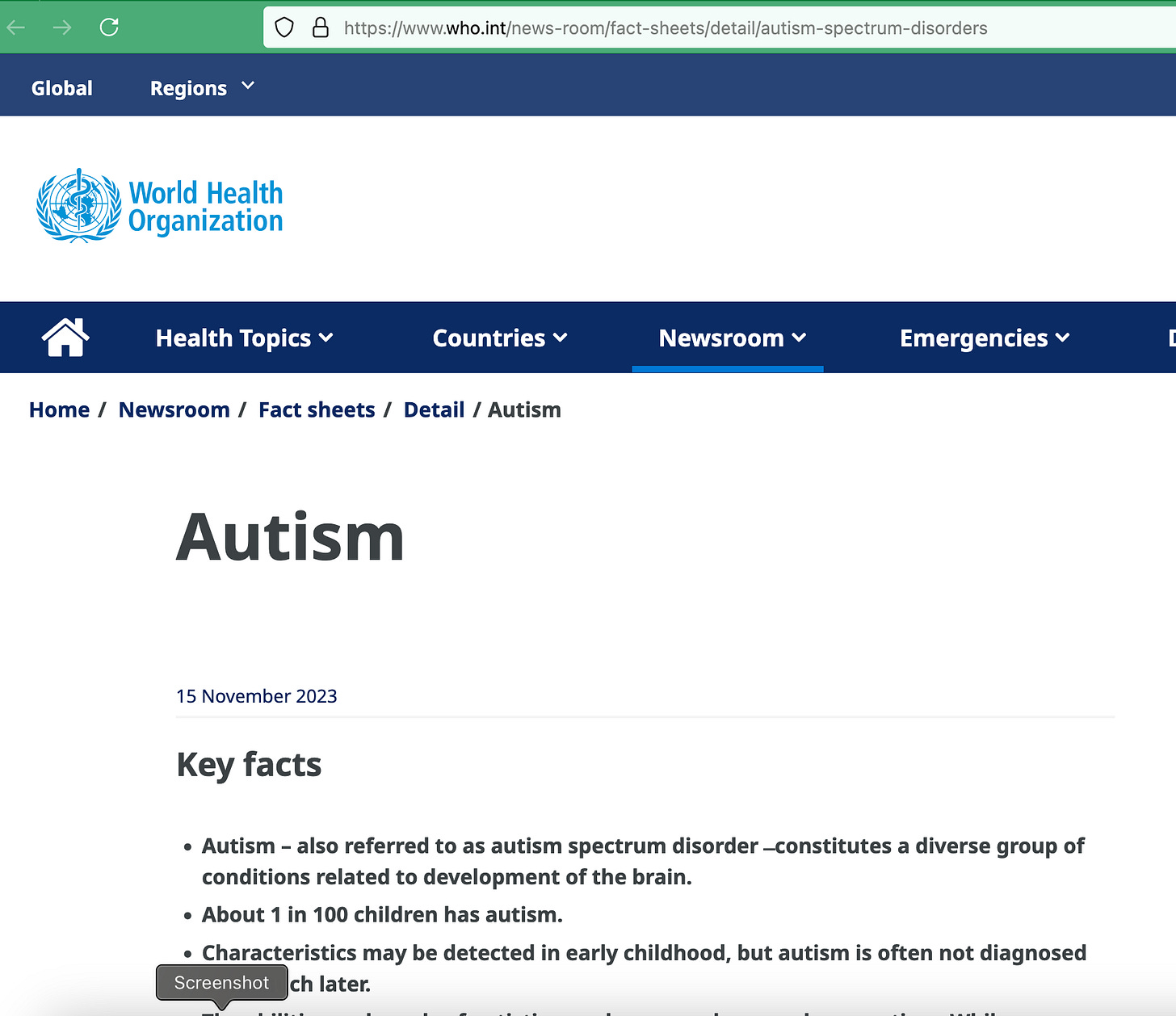



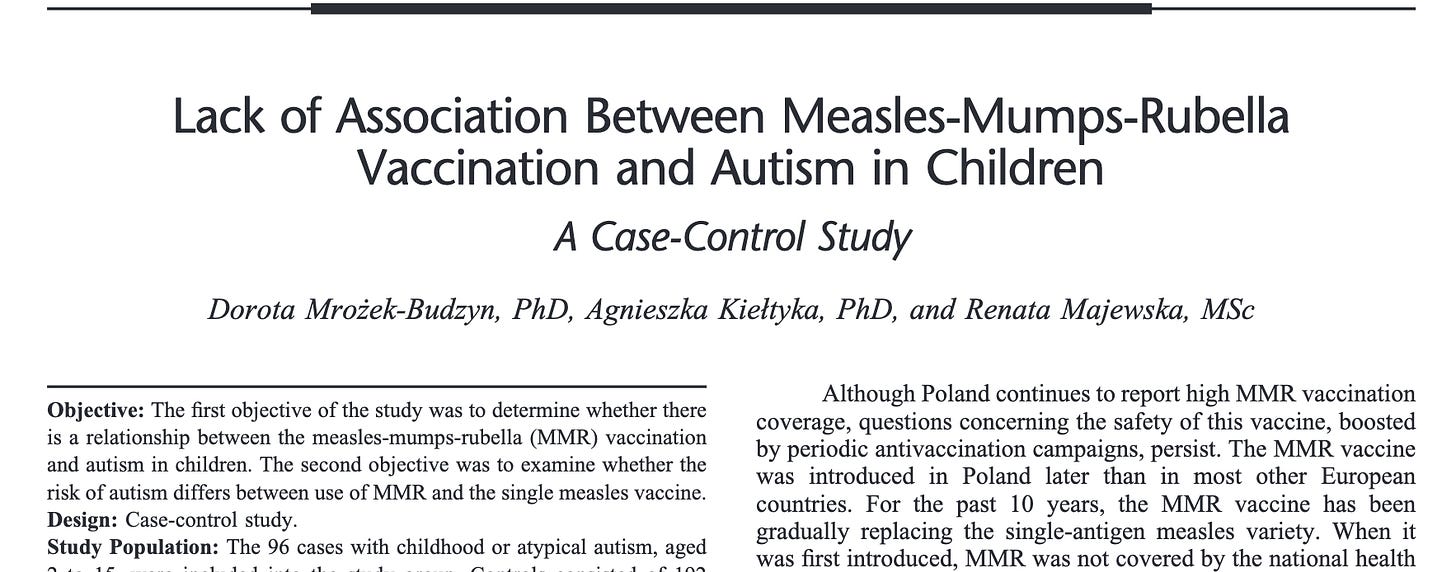






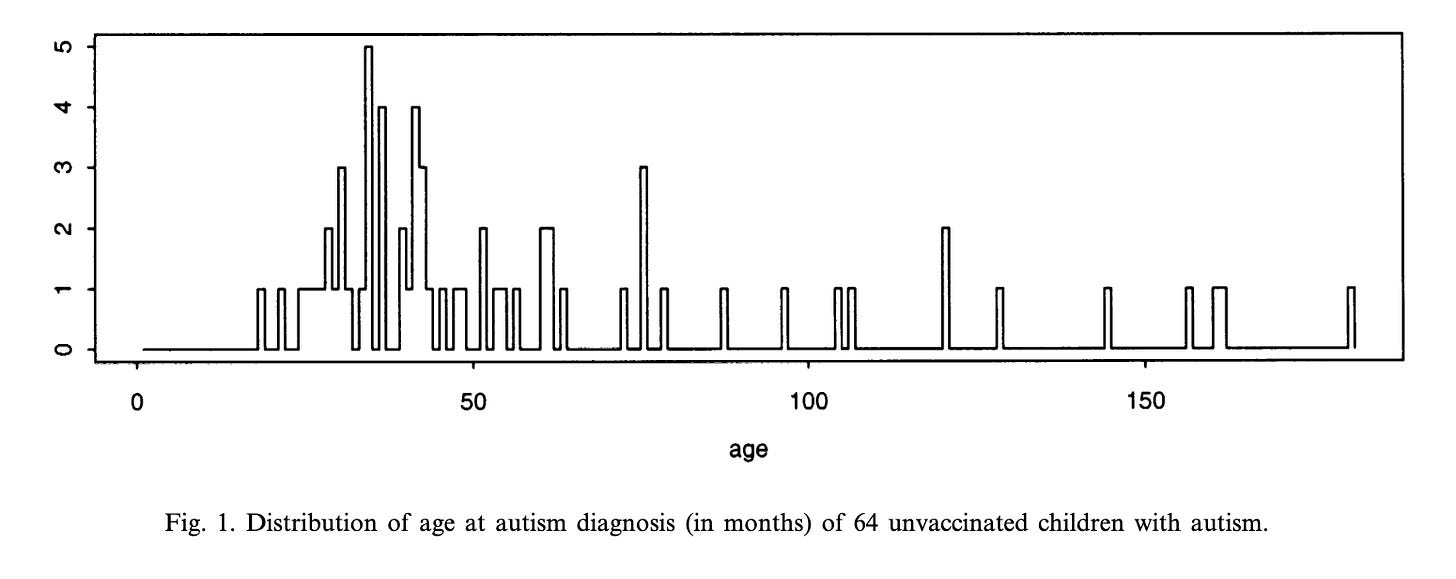








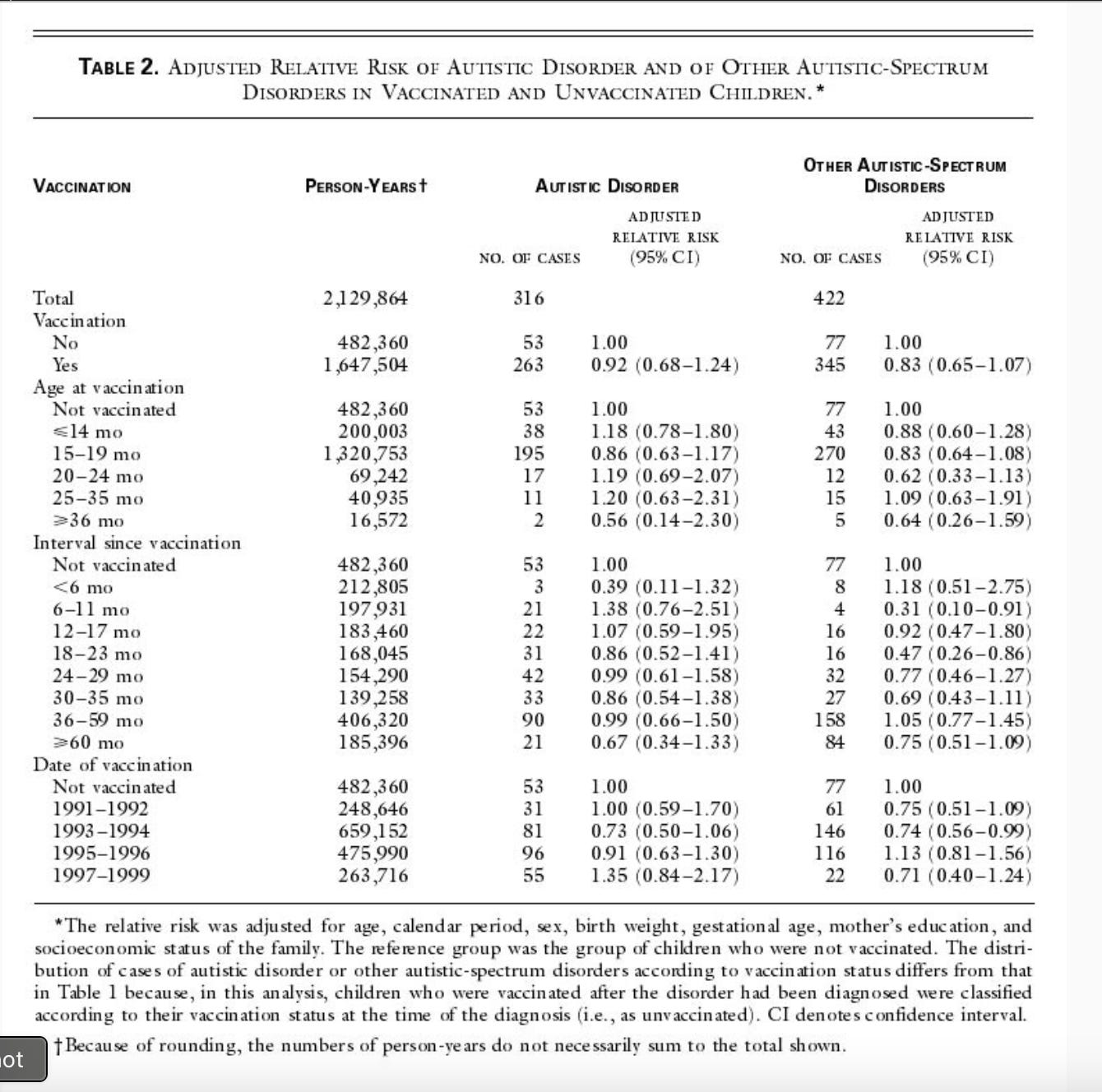

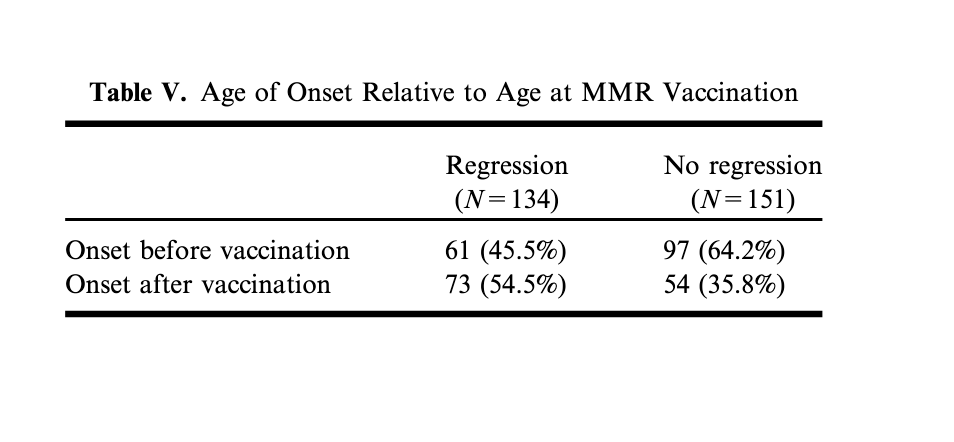

I believe that Autistic children may be sensitive to ingredients in vaccines. I have had some unusual reactions to medicines.
Ummm, these studies seem glaringly incomplete or downright inaccurate. Clearly, some were funded by the companies that make the vaccines, but why would they all consistently ignore links and say there were none? Unless many more of them had the same financial backing and just didn't disclose it? I know you're in the business of science and not conspiracies, Moorea, but this is alarmingly fishy, is it not?